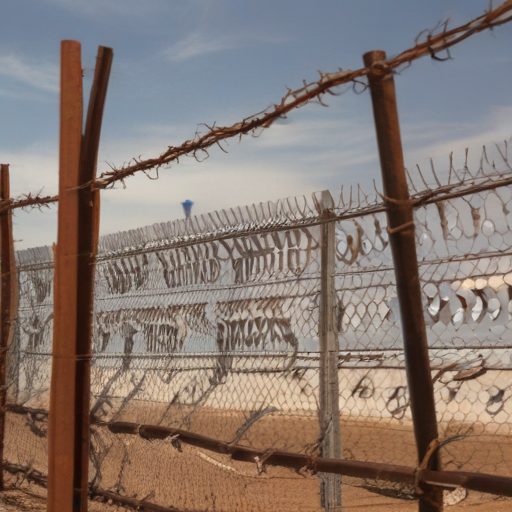President Trump has announced plans to utilize a migrant holding facility at Guantánamo Bay, Cuba, to accommodate up to 30,000 deported criminal migrants. This controversial proposal aims to address what Trump described as a “border invasion” while also dismantling criminal cartels operating in the U.S. He has directed the Pentagon and Department of Homeland Security to initiate this process.
The Trump administration clarified that these migrants would not be housed in the military prison currently used for alleged terrorists, including the figure suspected of orchestrating the 9/11 attacks, Khalid Sheikh Mohammed. Instead, they would be placed in a separate section of the naval station, which has previously held migrants intercepted at sea from countries such as Cuba, Haiti, and the Dominican Republic.
During a Fox News segment, Homeland Security Secretary Kristi Noem and Defense Secretary Pete Hegseth elaborated on the initiative, stating that the migrants would not be confined indefinitely and would rather be treated as a “temporary transit” until arrangements could be made for their return to their home countries. Hegseth emphasized that this does not equate to creating detention camps for criminals alongside high-risk terrorists.
Trump initially claimed there were enough facilities at Guantánamo to support the influx of 30,000 detainees, but he later mentioned the potential need to expand capacity. Concerns have been raised by legal experts about whether Guantánamo has the resources to accommodate such a large number of people, with critics noting that the existing conditions are far from adequate.
Vince Warren of the Center for Constitutional Rights expressed skepticism about the realistic feasibility of housing thousands of individuals at Guantánamo, citing the facility’s deteriorating state and warning of potential legal challenges arising from inadequate conditions of confinement.
Operational logistics surrounding this initiative remain vague, including how much funding will be required and when the transfer of deportees to Guantánamo might commence. Trump’s administration is reportedly considering various locations on the base to house deported migrants, including using a golf course area for an additional 6,000 individuals.
Overall, while the proposal aims to firmly tackle illegal immigration and enhance national security, it raises significant concerns regarding human rights and the practical execution of housing thousands of migrants in a facility with a fraught history. Moving forward, it will be crucial for the administration to ensure humane treatment and adhere to legal standards if the plan is to be realized.
